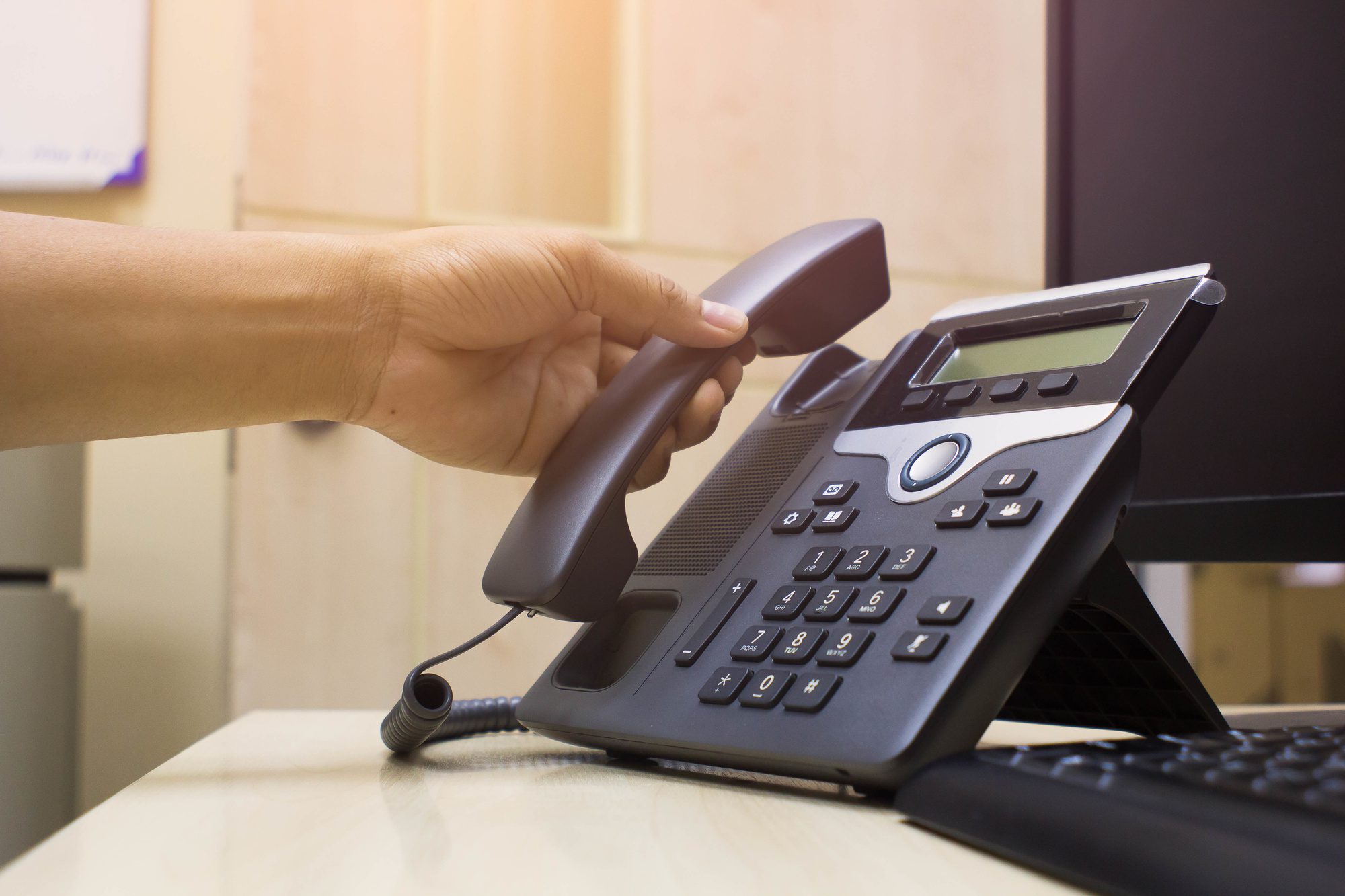
Missed Calls, Lost Patients: The Real Impact of Not Having a Medical Answering Service
In the healthcare industry, every interaction with a patient counts. From the initial phone call to the follow-up visit, each touchpoint is an opportunity to build trust, provide care, and ensure patient satisfaction. However, when calls go unanswered, or patients are left on hold for too long, the consequences can be more significant than many practices realize. Missed calls can lead to lost patients, decreased revenue, and a damaged reputation. In an era where patient expectations are higher than ever, not having a medical answering service can be a costly mistake.
This blog will explore the real impact of not having a medical answering service, including how it affects patient retention, practice revenue, and overall efficiency. By understanding these impacts, healthcare providers can make informed decisions about the importance of implementing a professional answering service.
The Critical Role of Communication in Healthcare
Effective communication is the cornerstone of quality healthcare. Patients rely on their healthcare providers not only for medical expertise but also for timely and responsive communication. Whether it’s scheduling an appointment, asking a question about a prescription, or seeking urgent care, patients expect their calls to be answered promptly and professionally.
Patient Expectations in the Digital Age
In today’s digital age, patients are accustomed to immediate responses and 24/7 accessibility. With the rise of telemedicine, online appointment booking, and digital health records, patients expect their healthcare providers to be as responsive as their favorite online retailer. When a patient’s call goes unanswered or is mishandled, it can lead to frustration, anxiety, and a loss of trust in the provider.
Key Patient Expectations:
- Availability: Patients expect to be able to reach their healthcare provider at any time, especially during emergencies.
- Prompt Response: Long wait times or unanswered calls can lead to dissatisfaction and a negative perception of the practice.
- Professionalism: Patients expect their calls to be handled professionally, with clear communication and empathy.
When these expectations are not met, the consequences can be far-reaching.

The Impact of Missed Calls on Patient Retention
Patient retention is a critical factor in the success of any healthcare practice. Keeping existing patients satisfied is often more cost-effective than acquiring new ones. However, missed calls can significantly impact patient retention, leading to a steady decline in the patient base over time.
Missed Appointments and Cancellations
One of the most direct consequences of missed calls is missed appointments. If a patient cannot get through to schedule an appointment, confirm a time, or cancel when necessary, it can result in lost opportunities for care. Moreover, when appointments are missed due to poor communication, it can lead to gaps in treatment, potentially compromising patient outcomes.
Patients who frequently experience difficulty reaching their provider are more likely to seek care elsewhere. For instance, if a patient tries multiple times to contact the office without success, they may decide to switch to a practice that offers better accessibility. Over time, these lost patients add up, leading to a decline in the overall patient base and reducing the practice’s revenue.
The Cost of Patient Churn
Patient churn, or the rate at which patients leave a practice, is a significant concern for healthcare providers. High churn rates can lead to decreased revenue, as each lost patient represents lost potential income from appointments, treatments, and follow-up care. Additionally, the cost of acquiring new patients to replace those who have left can be substantial, involving marketing efforts, discounts, and time spent onboarding new patients.
Reasons for Patient Churn Due to Missed Calls:
- Inability to Schedule or Reschedule Appointments: Patients may leave if they find it difficult to book appointments or reschedule existing ones.
- Poor Response to Inquiries: If patients cannot get answers to their questions or concerns in a timely manner, they may seek care elsewhere.
- Lack of Follow-Up: Failure to follow up with patients after their initial contact can lead to a breakdown in the provider-patient relationship.
Revenue Loss from Missed Opportunities
In addition to losing patients, missed calls can lead to significant revenue loss due to missed opportunities. Each missed call represents a potential appointment, treatment, or consultation that never happens. Over time, these missed opportunities can add up to substantial financial losses.
Unscheduled Appointments and Treatments
Every time a patient tries to call your practice to schedule an appointment and can’t get through, that’s a lost opportunity for revenue. Whether the patient is seeking a routine check-up, a follow-up visit, or a new treatment, the inability to connect with your office directly impacts your bottom line.
For instance, consider a scenario where a patient needs to schedule a follow-up appointment after a surgery. If they cannot reach your office, they might delay their care, potentially leading to complications. Alternatively, they might choose to seek follow-up care from a different provider, resulting in lost revenue for your practice.
Impact on New Patient Acquisition
New patient acquisition is essential for the growth of any healthcare practice. However, if prospective patients cannot reach your office or have a negative experience during their first call, they are unlikely to choose your practice. In today’s competitive healthcare environment, a single missed call can result in a lost opportunity to acquire a new patient, who might instead turn to a competitor.
Moreover, patients today are more likely to share their experiences online. A negative review based on poor communication can deter other potential patients from choosing your practice, further impacting your revenue and reputation.

The Role of Medical Answering Services in Enhancing Efficiency
Beyond patient retention and revenue, missed calls can also negatively impact the overall efficiency of your practice. Without a dedicated answering service, staff members may find themselves overwhelmed by the volume of incoming calls, leading to burnout, mistakes, and a decrease in the quality of patient care.
Alleviating Staff Burden
Receptionists and front office staff are often the first point of contact for patients. However, when they are inundated with calls, they may struggle to manage other essential tasks, such as patient check-ins, billing, and administrative duties. This can lead to longer wait times for in-office patients, increased stress for staff, and a decline in overall office efficiency.
A medical answering service can help alleviate this burden by handling incoming calls, scheduling appointments, and addressing basic inquiries. This allows your in-office staff to focus on providing quality care to patients who are physically present, improving the overall patient experience.
Reducing Errors and Improving Accuracy
In a busy medical practice, errors can happen—whether it’s a missed message, a double-booked appointment, or incorrect patient information. These mistakes can have serious consequences, from patient dissatisfaction to legal issues. Medical answering services are trained to handle calls with precision, ensuring that messages are accurately relayed, appointments are correctly scheduled, and patient information is properly managed.
Enhancing Patient Satisfaction with Professional Call Handling
Professional call handling is more than just answering the phone—it’s about creating a positive first impression, providing clear and empathetic communication, and ensuring that patients feel heard and valued. A medical answering service specializes in delivering this level of service, which can significantly enhance patient satisfaction.
Personalized Patient Interaction
When patients call your office, they want to feel that their concerns are being addressed promptly and personally. A medical answering service can offer personalized interactions, where each patient is treated with care and respect. This personalized service helps build trust and loyalty, as patients are more likely to return to a practice where they feel valued.
Managing After-Hours Calls
One of the biggest challenges for any medical practice is managing after-hours calls. Patients often need assistance outside of regular office hours, whether it’s for an urgent medical issue or a simple question. Without a medical answering service, these calls may go unanswered, leading to patient frustration and potential health risks.
A 24/7 medical answering service ensures that all patient calls are handled, regardless of the time of day. Whether it’s providing reassurance during an after-hours emergency or scheduling an appointment for the next day, a medical answering service can significantly enhance the patient experience.

Legal and Compliance Considerations
In the healthcare industry, compliance with regulations such as the Health Insurance Portability and Accountability Act (HIPAA) is crucial. Mishandling patient information, even unintentionally, can lead to serious legal consequences, including fines and lawsuits.
HIPAA Compliance
Medical answering services are trained in HIPAA compliance, ensuring that all patient information is handled securely and confidentially. This includes maintaining the privacy of patient records, securing communication channels, and ensuring that sensitive information is only shared with authorized personnel.
By using a professional medical answering service, healthcare providers can reduce the risk of HIPAA violations, protecting both their patients and their practice.
The True Cost of Not Having a Medical Answering Service
While the financial costs of missed calls, lost patients, and reduced efficiency are significant, the true cost of not having a medical answering service goes beyond dollars and cents. It impacts patient trust, satisfaction, and the overall reputation of your practice.
Long-Term Impacts on Reputation
In today’s healthcare landscape, reputation is everything. Patients are more likely than ever to research providers online before making an appointment, and a negative experience—whether due to missed calls, poor communication, or unprofessional handling—can lead to damaging reviews and word-of-mouth. Over time, these negative perceptions can erode your practice’s reputation, making it harder to attract and retain patients.
The Value of Investment in Patient Care
Investing in a medical answering service is an investment in patient care. It demonstrates a commitment to providing high-quality, accessible care to all patients, regardless of when they call or what language they speak. This investment can lead to higher patient satisfaction, better patient outcomes, and a stronger, more resilient practice.
In the competitive world of healthcare, missed calls can have far-reaching consequences. From lost patients and revenue to reduced efficiency and legal risks, the impact of not having a medical answering service is significant. By investing in a professional answering service, healthcare providers can ensure that every patient call is answered promptly, professionally, and with the care it deserves.
